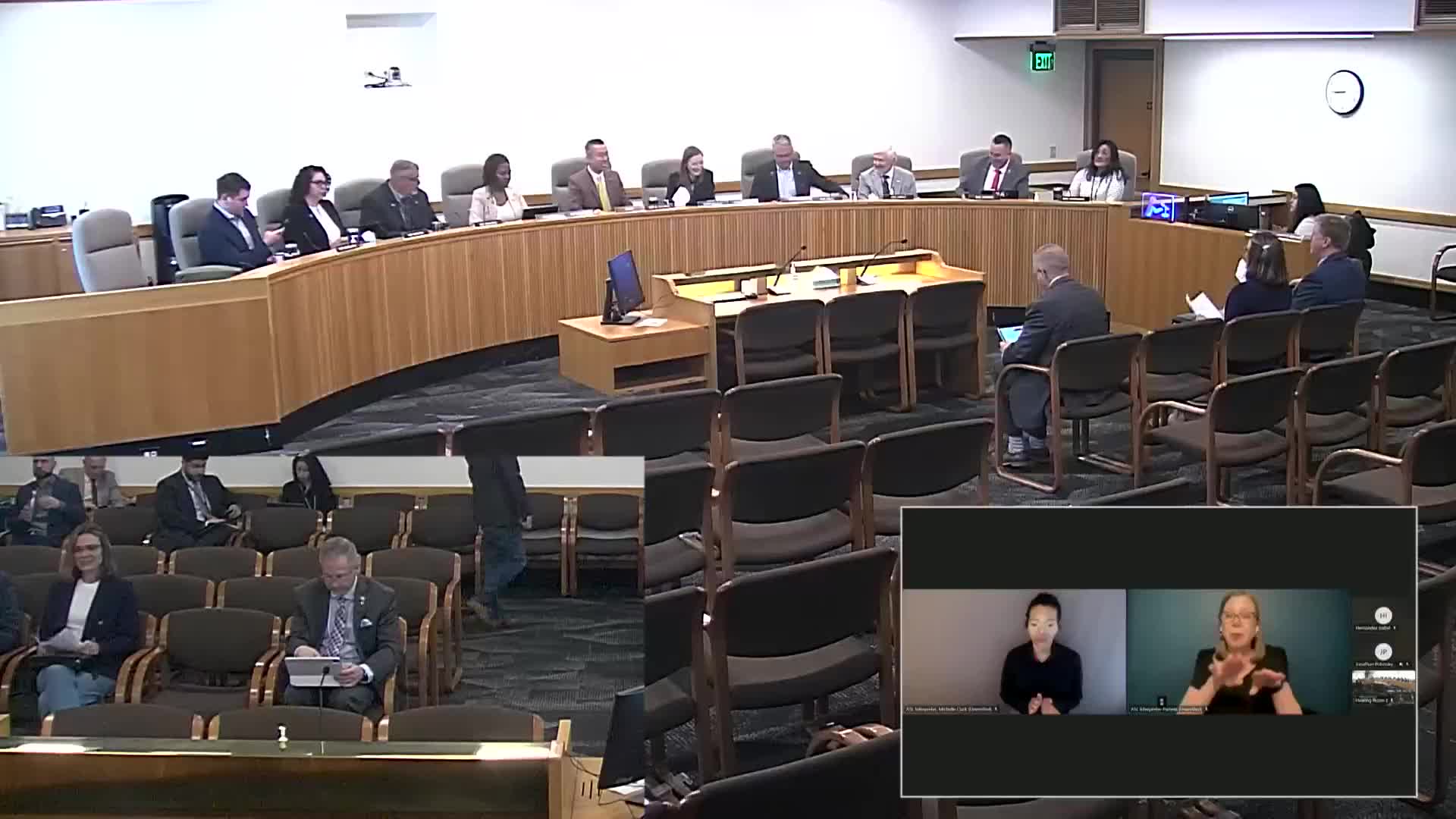Committee hears testimony on bill to allow ID swipes for age checks; privacy concerns and retailer support aired
Get AI-powered insights, summaries, and transcripts
Subscribe
Summary
The House Committee on Economic Development, Small Business and Trade opened a public hearing April 28 on Senate Bill 1,005, which would allow private entities to swipe a customer's driver's license or identification card to verify age regardless of "reasonable doubt."
The House Committee on Economic Development, Small Business and Trade opened a public hearing April 28 on Senate Bill 1,005, which would allow private entities to swipe a customer's driver's license or identification card to verify age when selling age-restricted goods, regardless of whether there is "reasonable doubt" about the customer's age.
Senator Daniel Bonham, a sponsor of the bill, said the change removes a subjective standard and enables retailers to use point-of-sale card-swiping technology to confirm an ID. "It says, yes, this is a valid ID and yes, this person's 21 years old," Bonham said, describing the devices as a single-pass verification that does not retain customer data.
Representative Emily McIntyre, co-sponsor, emphasized the bill does not create new authority to store or sell swipe data. She noted the bill continues to prohibit storing, selling or sharing personal information collected from swiping except in narrowly defined circumstances tied to fraud prevention or return policies. "In no way, shape or form does this bill permit any additional storage of information," McIntyre told the committee.
Proponents from retail and liquor interests testified in support. Jonathan Polonsky, chief executive officer of Plaid Pantry, which operates more than 100 stores in Oregon, said his company adopted a policy during the COVID-19 pandemic to card every customer and relies on swiping equipment as part of its compliance program. "Our ID scans are to validate that an individual's identification is authentic, it is not expired, and if they're over the age of 21. 'We do not store any customer information," Polonsky said, submitting a written account of a robbery in which a scanned ID did not produce identifying data for investigators.
Marshall Koba of the Associated Liquor Stores of Oregon also urged support, calling the bill a "simple clarification of current law" that helps clerks use available technology when concerns about legal age arise.
Members of the committee and other legislators pressed proponents on privacy and data-security risks. Representative Rob Osborne asked whether swipes capture employee or community impacts; others raised scenarios where third-party software used in other states can aggregate scans for uses such as over-service prevention or marketing. Representative Osborne said the potential for future expansion of data collection was a concern.
Supporters and some retailers responded that the card-swiping systems described in testimony are configured to return a yes/no validation and do not retain backend data. Bonham and others said that retailers use different systems (swipe devices for age checks versus larger point-of-sale scanning and customer-account systems) and that ORS 807.75 already prohibits storing, selling or sharing swipe data for age verification.
Representative E. Warner Raschke, another sponsor, said the bill moves an age-check standard from subjective judgment to an objective driver's-license read and encouraged the committee to advance the measure.
Committee members asked clarifying questions about related statutes and agency rules, including OLCC (Oregon Liquor Control Commission) guidance and federal tobacco-age thresholds; testimony referenced industry practices that verify customers under different age thresholds for different products (for example, some retailers use 26 as an internal threshold for carding and federal tobacco guidance reaches higher ages for certain requirements).
No vote was taken during the hearing. Committee staff and members discussed the need to review related data-privacy guardrails, and the chair noted other bills under consideration that would address data use and artificial-intelligence oversight.
